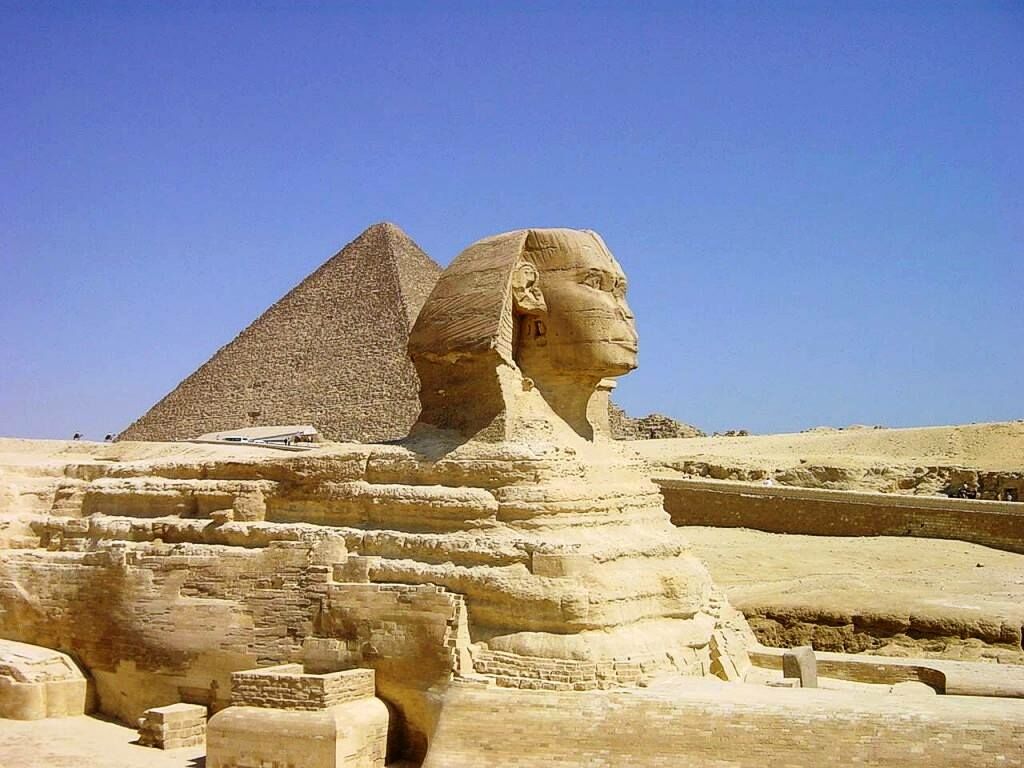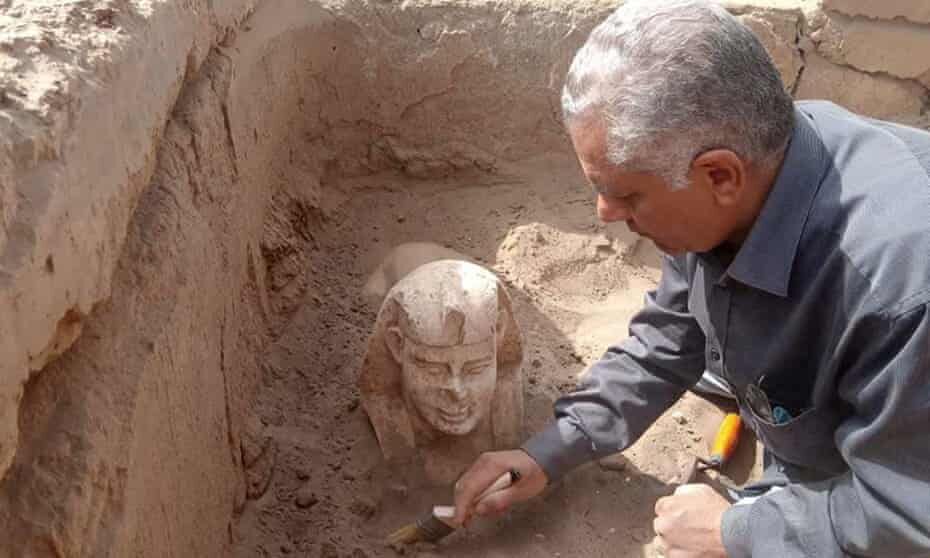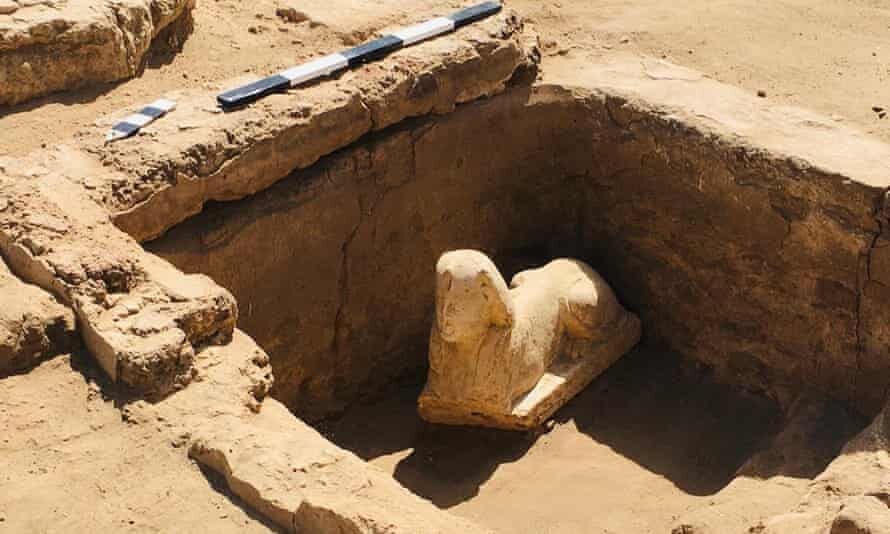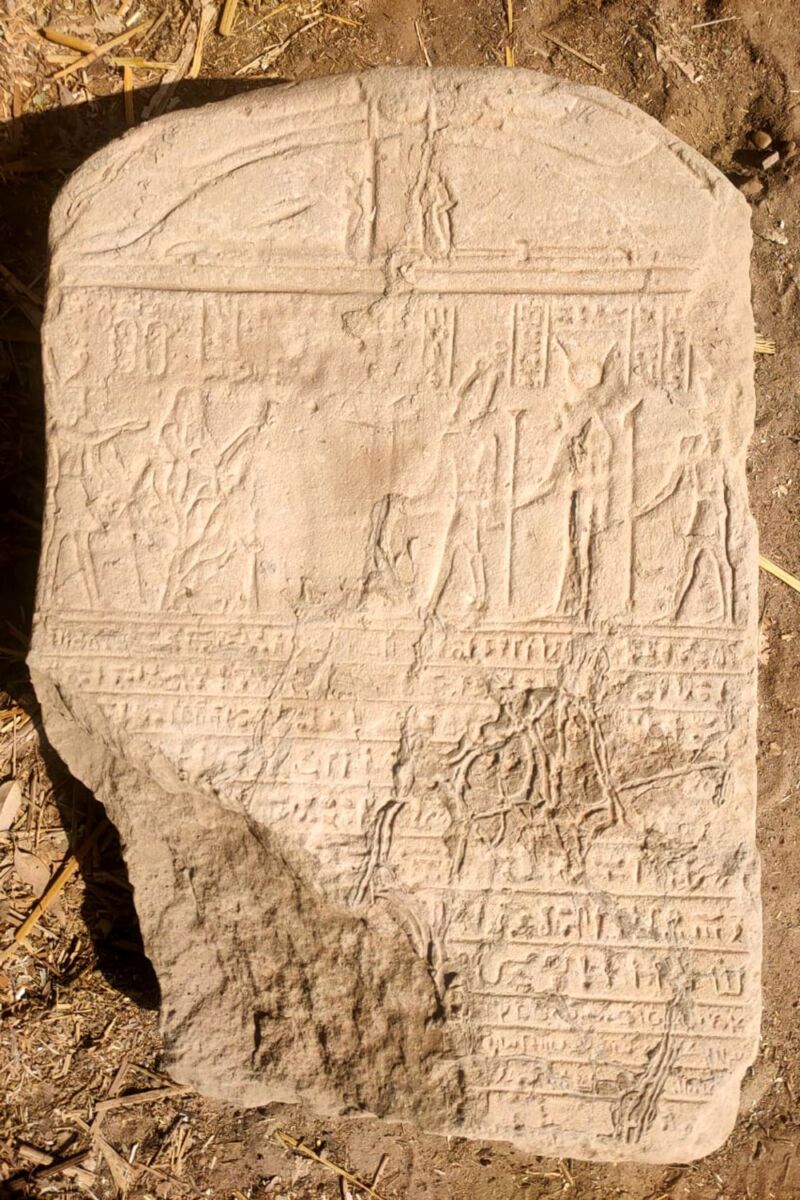Archaeologists in Egypt discover Sphinx statue related to Roman emperor

Archaeologists in Egypt have uncovered one of the most important finds in decades in the southern region of the country. According to the antiquity ministry, a sphinx-like statue and the remains of an ancient shrine have been unearthed near the Hathor Temple, one of Egypt’s best-preserved ancient sites.
This incredible find was made inside a two-level tomb located in the temple of Dendera in Qena Province, approximately 450 kilometres south of Cairo, Egypt’s capital. The limestone sphinx, which features a “smiley face and two dimples,” is thought to represent Roman Emperor Claudius, who extended Roman rule into North Africa between 41 and 54 AD.
While much smaller than the famous Sphinx at the Pyramids of Giza, which stands an impressive 66 feet high, this discovery is no less significant. In addition to the beautifully carved sphinx, the team also found a Roman-era stone slab with demotic and hieroglyphic inscriptions, providing valuable insight into the area’s history.
But the discoveries don’t stop there. The limestone shrine includes a two-layer platform and a mud-brick basin from the Byzantine era, adding to the already impressive collection of artefacts found at the site.
Archaeologists are eager to study the markings on the stone slab to uncover further information about the statue’s identity. This latest find adds to the growing list of recent archaeological discoveries in Egypt, including the unveiling of 59 ornately decorated coffins in the same region in 2020.

One of the most significant finds in recent years came in 2018 when archaeologists discovered a new pyramid near the ancient city of Dahshur. This structure, which dates back to the 13th dynasty, is thought to have been built for the daughter of Pharaoh Emnikamaw.
In 2019, another pyramid was uncovered, this time in Saqqara. This impressive structure, which dates back over 4,000 years, was discovered in a burial chamber and is thought to have belonged to the wife of King Teti, one of Egypt’s early pharaohs.
Other significant discoveries include the uncovering of a vast necropolis in 2018, which contained more than 50 tombs dating back to the Ptolemaic era. In 2020, 59 ornately decorated coffins were discovered in the same region, providing valuable insights into ancient burial practices.
Egypt’s rich history isn’t just limited to pyramids and tombs. In 2018, archaeologists discovered a previously unknown statue of Ramses II, one of Egypt’s most famous pharaohs. The 26-foot statue, which is incredibly well-preserved, was found in a muddy pit in a Cairo suburb.
Perhaps most excitingly, advances in technology have also led to new discoveries. In 2020, a team of researchers used ground-penetrating radar to uncover a vast network of underground tunnels near the Temple of Karnak in Luxor. These tunnels, which are thought to have been used for ritual purposes, are just one example of how modern technology is helping to uncover Egypt’s ancient secrets.
These latest findings remind us of the rich cultural heritage that exists in this part of the world and the importance of preserving it for future generations to enjoy.



Latest Thailand News
Follow The Thaiger on Google News:


























